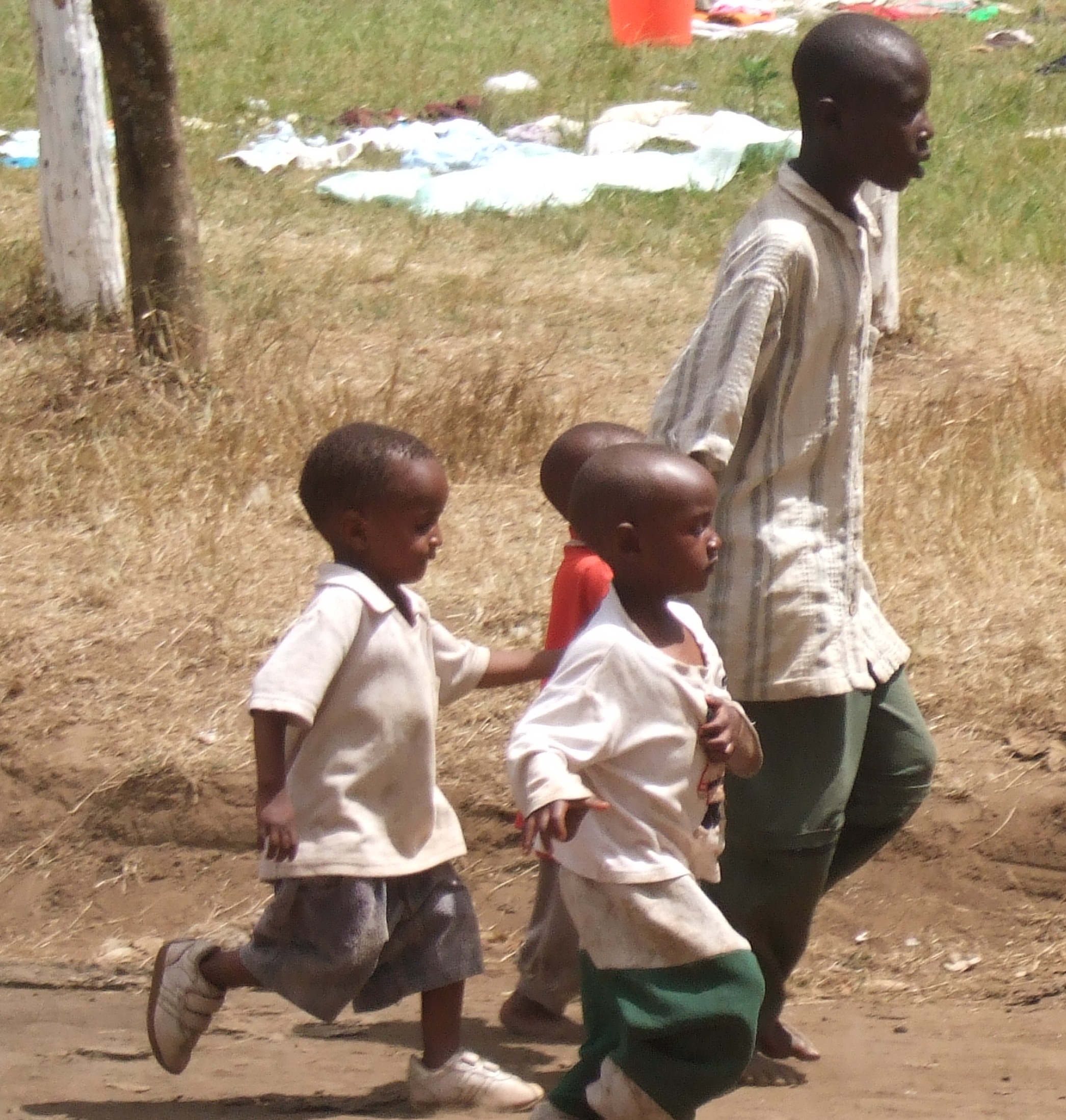Violence in the Rift Valley town of Nakuru has seen the numbers of displaced at the town's largest camp skyrocket, but camp officials say it is becoming increasingly difficult to provide security for the IDPs, and children are being particularly affected.
"At the moment we have more than 5,900 IDPs in the camp, and more than 2,800 of these are children," Jesse Njoroge, coordinator of the camp at the Nakuru showground, told IRIN. "Many children come in alone because of the haste with which these families have to leave their homes."
According to Mary Muthumbi, Nakuru district's children's officer, at least one child has reported being sexually abused since the camp was opened on 30 December.
"Unfortunately, although the case has been taken up by the Rift Valley Law Society, the child cannot identify the attacker, so prosecuting it is proving somewhat difficult," she told IRIN.
Monitoring of volunteers at the camp is weak, and many people masquerading as well-wishers or donors are able to enter the camp without any screening. The police are overwhelmed by the ongoing violence in Nakuru, and have thus far been able to provide little protection.
An attack on the camp on 26 January saw children caught up in the skirmishes, ducking between machete-wielding youths in their attempts to scramble to the safety of marquees housing them.
"The situation is getting worse now, because the violence has turned completely tribal, so even working in the camp has become difficult," Muthumbi said. "My child protection officers are from non-Kikuyu ethnic communities, and the Kikuyu majority in the camp is mistrustful and even hostile towards them, so for the time being we have withdrawn from the camp."
Before the department's withdrawal, Muthumbi said some measures had been put in place to ensure children were identified and protected. "We put the unaccompanied children in one tent as they arrive, and usually within a few days a parent or relatives arrive and collect them," she said.
Children who have not been identified have been placed in children's homes and orphanages in Nakuru, she added. However, according to Njoroge, many children have been taken in by local families who have not been vetted for suitability, placing them in danger of abuse or abduction.
"These people come to the camp and reach a loose agreement with the children's parents to house their kids, but a few days later the parents realise they don't want to be without their children and approach us, but by then we have no way of tracing them," he said. "In some cases, the volunteers realise they cannot actually afford to house and feed these children and return them, and we then have to start searching for their families."
Minimum standards of protection
According to Stenor Vogt, a child protection adviser with the UN Children's Fund, UNICEF, children are severely affected by separation from their parents, and are usually more easily traumatised by change.
"The best thing in these situations is to find a way to prevent separation; if this is not possible it is vital that unaccompanied or separated children are identified and reunited as early as possible with their families," he said.
Vogt noted that after the Rwanda genocide, children who had remained with their family - even extended family - suffered fewer psycho-social problems than those who had been placed in institutions after the displacement or loss of their parents.
 Photo: Keishamaza Rukikaire/IRIN  |
| Children attending class under a tree at one IDP camp |
Vogt stressed that even in the camp setting, child-friendly spaces needed to be created where children could play together and be monitored to find out whether any had suffered physical or psychological trauma.
"Children should be placed in schools as early as possible to give them a sense that their lives are normal and also to provide them with more protection, as in school they are monitored by their teachers," he added. "Kids cope very well if they get to a normal environment fairly early - if they are in school and with their families."
Vogt - who is providing child protection training to carers in Nakuru - said Kenya had the advantage that culturally, children tended to remain with members of their family or community even when they lost a parent, which reduced the possibility of abuse or additional trauma.
Nakuru district's Muthumbi said primary school-age children had been placed at two local schools, Moi and Lenana primary schools, where large tents have been erected to accommodate the children. The children's health, sanitation and nutritional needs, she noted, were being fairly well managed by the government and NGOs.
"We now have a problem with secondary school-age children, who have yet to be placed," she added. "Now that the violence has started again, it will be even more difficult to start placing them."
Many of these secondary school-age youth are members of the camp's informal protection unit, standing guard day and night against attacks from local gangs. Njoroge noted that some teenage girls had begun to have sex in exchange for food and money.
UNICEF estimates that the current violence in Kenya has displaced 100,000 children, at least 75,000 of whom are living in IDP camps across the country.
kr/mw
This article was produced by IRIN News while it was part of the United Nations Office for the Coordination of Humanitarian Affairs. Please send queries on copyright or liability to the UN. For more information: https://shop.un.org/rights-permissions





